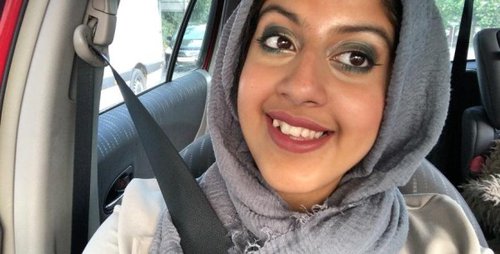
Ambassador View: How to write a Personal Statement
Hola! My name is Sarah and I am a newbie Ambassador to Uptree. I’m currently studying Maths, Physics and Economics. I wish to study Artificial Intelligence and, one day, work in Silicon Valley, California.
I have just completed my Personal Statement and I am going to share with you my top tips!
Remember: Personal Statements are supposed to be PERSONAL to you so take my advice with a pinch of salt and let YOUR creative juices flow!

I’ve split this blog into:
-
General Tips
-
Work Experience
-
Structure
#1 General tips
START EARLY!
The earlier you start, the more time you have to refine. Meet the early deadline even if you’re not expected to. Ideally, you want to have already written a good few drafts in the summer so that you’re not having to stress about it as much when you start your second year of college or Sixth Form.
Make a draft without a character or word count – just write like there is no tomorrow. Sticking to the word count could initially hamper your creativity. It’s easier to sand down later than it is to bulk up.
Don't write don't . Instead, write ‘do not’. Be as formal as possible so leave out contractions.
Concentrate on your strengths . You have to sell your attributes on an A4 page so you want to come off super strong, eager and in the best possible light.
Don’t include flowery, confusing lingo . Admissions staff read thousands of personal statements so you want them to have a nice and elegant read – don’t make their lives harder!
Be honest – especially if you’re going to have an interview. Get caught out will show you as disingenuous and untrustworthy, not traits any university wants in their students.
Get other people to proof read . Ask your friends, teachers, form tutors, siblings or parent – basically pairs of eyes that aren’t your own.
You’re speaking to the experts – avoid clichés. You’re not telling them about the course, they already know about that. You’re telling them WHY you’re the candidate they should pick.
PS. Don’t say, 'ever since I was 5 year old, I have wanted to study…' Chances are at age 5, you weren’t making a rational choice about your future career – I know I wasn’t.

#2 Work experience
Do your research and find out what kind of work experience is necessary (if any) for your course. For example, medics don’t HAVE to find a placement in a hospital – any care related experience is what is needed.
If you are going to mention work experience, talk about what you gained, learnt and how you will carry this forward. Show not tell.

They don’t want a super detailed description of your week either – keep it clear and concise.
Find out if you’re eligible for any additional schemes that can be added due to personal, financial or socioeconomic circumstances.
Examples may include:
-
Sutton Trust (there’s also a US version where you can do your placement in the states!)
-
University Access Programmes
e.g 'After my 2-week placement at a local care home, I realised how crucial it is to have people and listening skills. It was important to make the patients feel comfortable and supported in their environment. The interpersonal skills I have learnt will allow me to adapt in the medical placement field at university.
#3 Structure
I split my personal statement into 4 sections:
-
A : Introduction
-
B : Academic skills
-
C : Activities you have done which relate to the course
-
D : Extra-curricular activities
A. Introduction: keep it short
You may want to write this last as thinking about the opening line can take a while. Highlight your key academic motivations for why you wish to study your course – make it mature. Keep it short and snappy.
e.g I enjoy analysing and researching various philosophical concepts and this is one of the key reasons why I want to study…
B. Academic skills: main body
Here, you may want to do some independent research about your subject. Talk about a book/podcast/article/lecture/workshop independent from college course where you have learnt something new about your chosen subject.
Try to answer these questions:
-
Briefly, what was it about? (a few words)
-
What did it teach me?
-
How is it going to help with my uni course?
-
How am I going to further develop this?
e.g ' I particularly enjoyed ‘Freakonomics’ by Dubner and Levitt as it demonstrated how experts have capitalised on their ability to understand the difference between cause and effect to incentivise the population. It has helped to think like an economist by challenging concepts and ideas that I will learn at university.'
C. Activities you have done which relate to the course: main body
Here you may want to mention any work experience , university lectures, summer schools, competitions or essays you have written that you can take forward to university.

Use these questions to help you structure your response:
-
Briefly, what was it? (a few words)
-
What did it teach me?
-
How did I further develop this?
-
How is it going to help with my uni course/relate it back to uni?
e.g. During a biology seminar on the spread of mutations in human epithelium, I learnt how deep learning can be used to analyse the modelling of stem cell dynamics and if mutations can make stem cells better adapted. This led me to reading about the scientific, religious and political issues surrounding stem cell research namely from author Kirsten Monroe. I wish to further delve this topic at university through studying biology at a greater depth.
Extra-Curricular: keep it short and snappy
List your extra-curricular activities and skills you’ve gained that are transferable. No need for excessive amounts of detail and they don’t necessarily need to be linked to your course. No need for reflection or analysis. It’s okay to sound listy.
e.g I took part in the Gold DofE award and demonstrated leadership and commitment. I also take part in the weekly church choir where I show teamwork skills..
Finally...
Don’t stress over it too much! Admissions will also read your teacher references, look at your predicted grades and some of you will have an interview. You can ask your form tutors to add in any extra information that you couldn’t fit on your personal statement!

Remember everyone is going to have different thoughts and opinions but ultimately , YOU have to be happy with it. Good luck!
By Uptree Ambassador
Published on:
Thu 29 Oct 2020